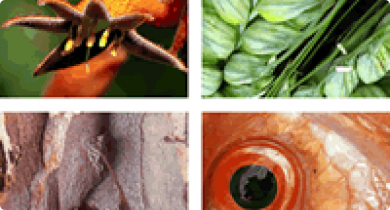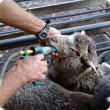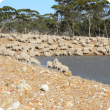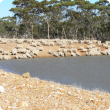Biosecurity & quarantine
The Department of Agriculture and Food, Western Australia (DAFWA) works with primary industries to safeguard our agricultural resources from biological threats and to maintain our export opportunities.
The State’s reputation is underpinned by a comprehensive biosecurity and quarantine system, developed and operated by DAFWA.
DAFWA is involved with:
- creation of surveillance and diagnostic programs
- animal and plant risk assessments
- importing and exporting requirements
- creating mechanisms to respond to incursions
- livestock movement and identification
- development and maintenance of biosecurity and quarantine legislation.
To find out more about what we do to protect agricultural production and export opportunities within the State please search our website.
Articles
Filter by search
Filter by topic
- Livestock management (10) Apply Livestock management filter
- (-) Remove Feeding & nutrition filter Feeding & nutrition
- Livestock biosecurity (10) Apply Livestock biosecurity filter
- Livestock & animals (10) Apply Livestock & animals filter
- Biosecurity (10) Apply Biosecurity filter
- Livestock health & diseases (7) Apply Livestock health & diseases filter
- Pests, weeds & diseases (7) Apply Pests, weeds & diseases filter
- Livestock disease surveillance (7) Apply Livestock disease surveillance filter
- Diseases (7) Apply Diseases filter
- Stockfeed (4) Apply Stockfeed filter
- Livestock species (4) Apply Livestock species filter
- Sheep (3) Apply Sheep filter
- Water management (1) Apply Water management filter
- Water (1) Apply Water filter
- Pigs (1) Apply Pigs filter
- Climate, land & water (1) Apply Climate, land & water filter
- Beef cattle (1) Apply Beef cattle filter








